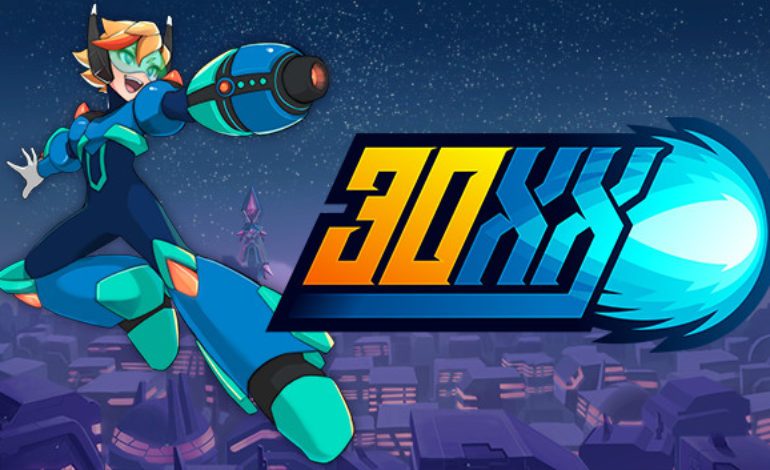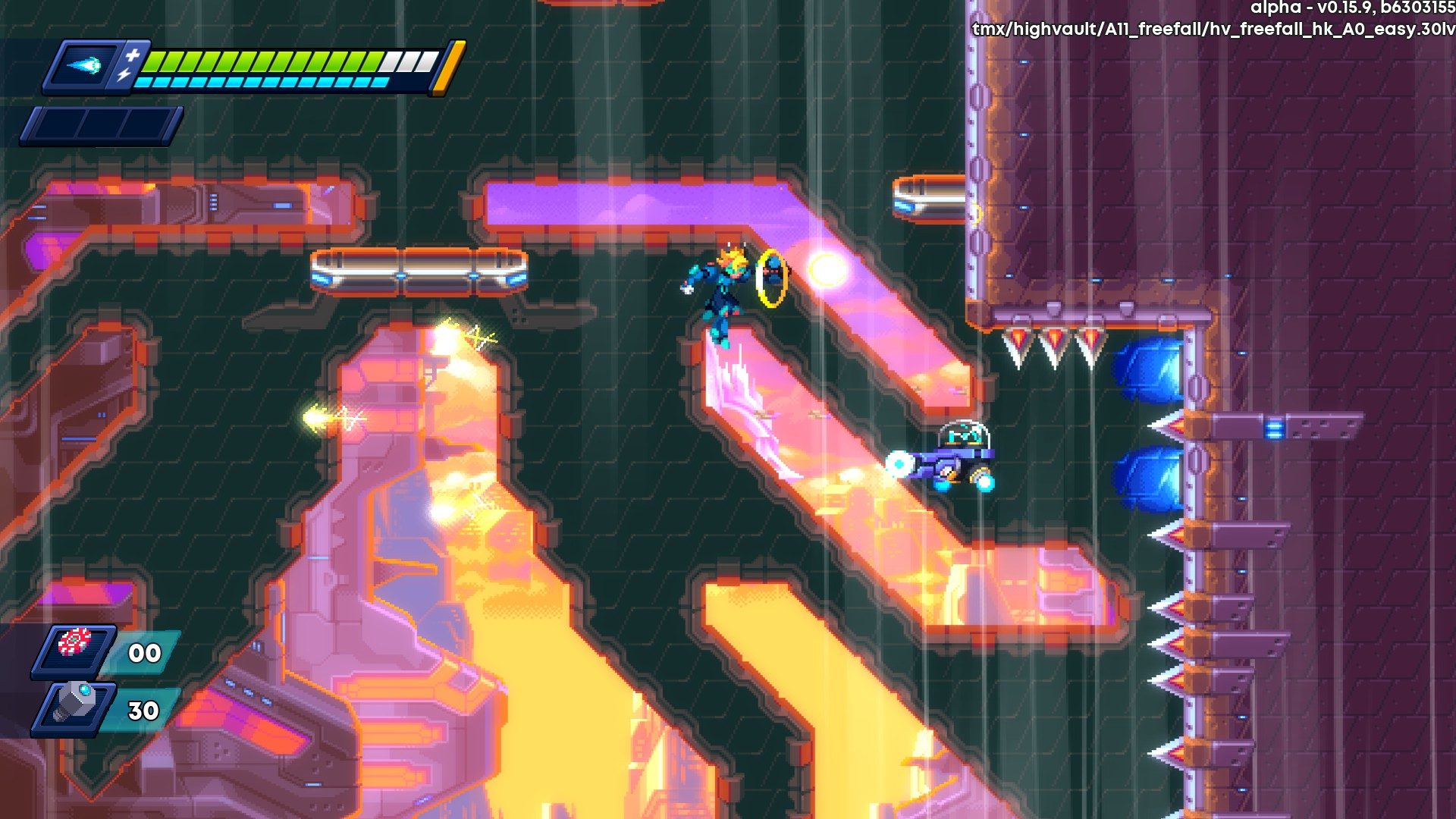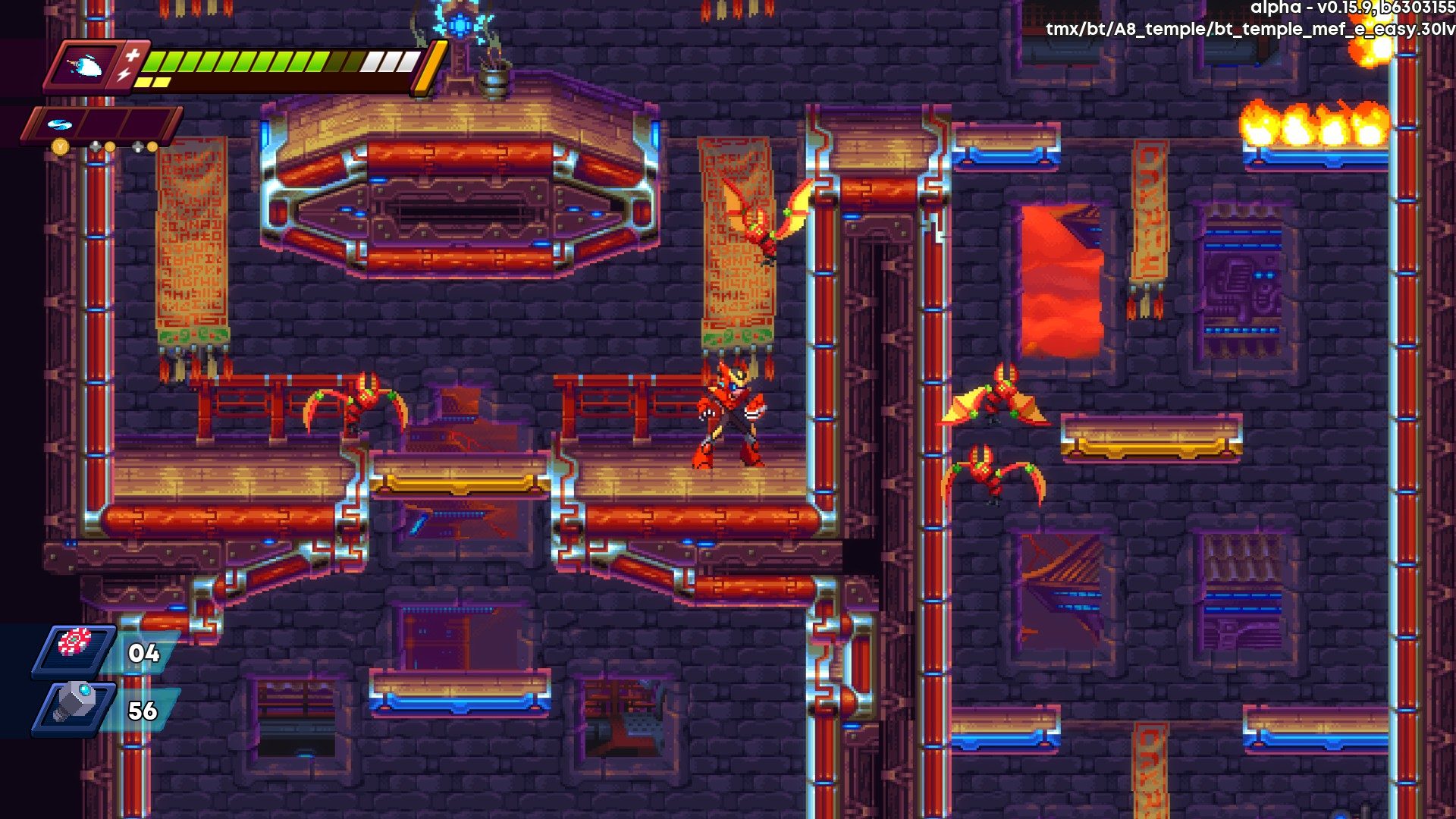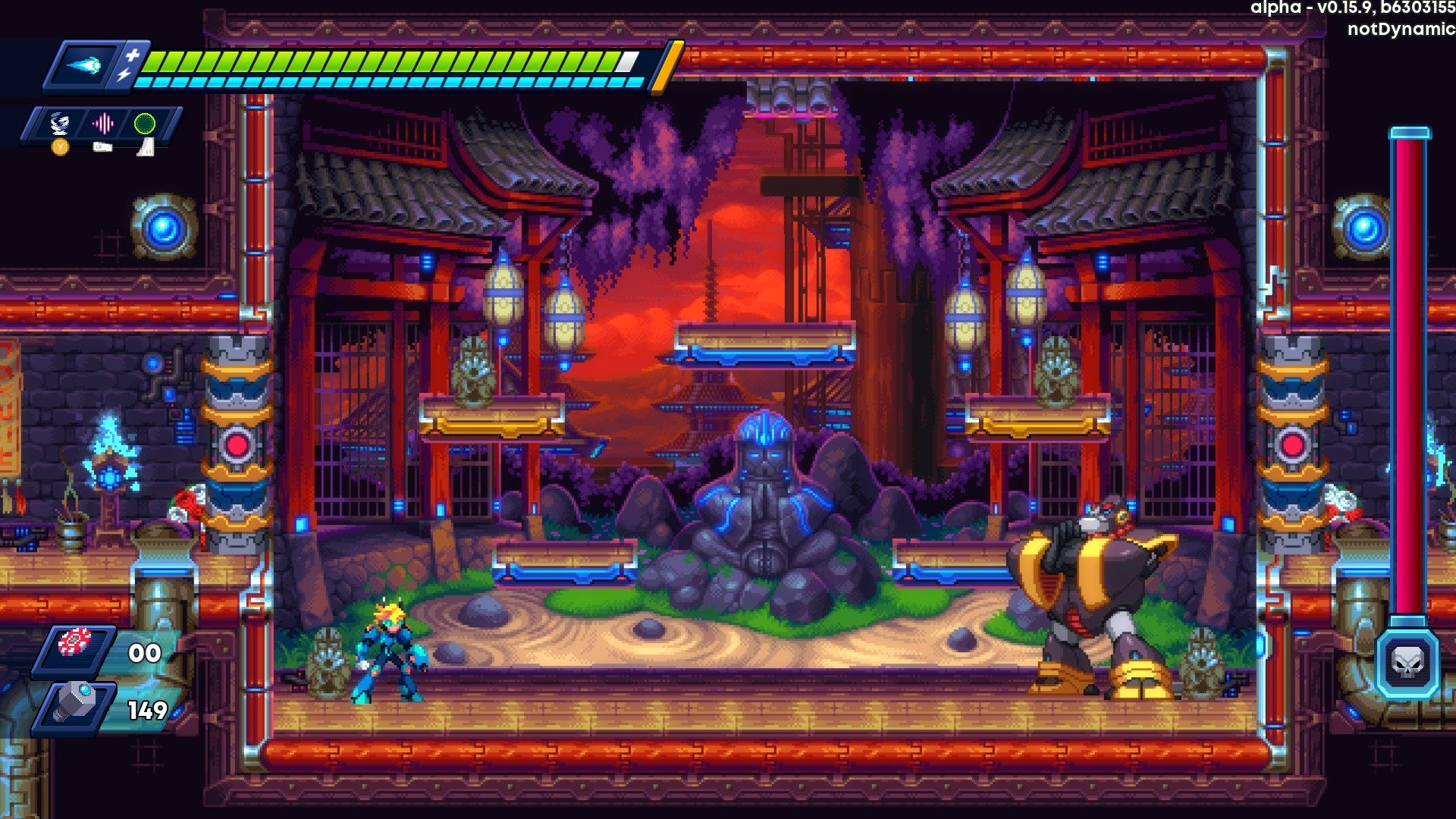

A sequel to the 2016 title 20XX, 30XX aims to build upon the Mega Man X-inspired action platforming gameplay and roguelike elements of its predecessor. As the game is currently in early access, only six level templates are currently available for players to try out. Having said that, what developer Batterystaple Games has crafted so far is nothing short of impressive. 30XX is an incredibly polished and well-made action platformer that any fan of the Mega Man series or roguelikes in general should pick up.
One of the core aspects of 30XX that make it such an enjoyable game to play is the controls. Much like the Mega Man X games, it features a precise movement system that responds instantly anytime the player pushes or lets go of the buttons and analog stick. The increase in speed and momentum that occurs when the player jumps out of a dash is always satisfying to pull off, and it keeps the levels moving at a consistently brisk pace. Since wall jumps have almost no cooldown, the player can easily chain consecutive wall jumps to scale up walls exceptionally quickly, which makes vertical movement just as fun to play around with as horizontal movement. Firing the blaster as Nina and swinging the sword as Ace feel just as responsive as they should, and this feedback along with the crisp explosions and effects make for combat that is as fast-paced as it is visceral. All of these elements make the controls remarkably solid on their own, but they are further amplified by the upgrades the player can obtain during any given run. Enhancements such as speed modifiers and a four-way midair dash make the character extremely fast and versatile, but never to the point where the character becomes uncontrollable. Being able to plow through levels at such high speeds while surgically weaving through obstacles is insanely gratifying, and it goes to show how much thought and care went into the movement system and controls.


The level design and roguelike elements are also handled surprisingly well. Each of the six level templates features its own enemy designs, traps, and level gimmicks that are all randomized with each playthrough. Although certain stage elements are scripted to appear at set intervals within each stage, the specific placements of each element can vary drastically. These randomized elements speak to the core appeal of the roguelike genre, and they generally succeed at making each run feel distinct and challenging. What impressed me most about the randomized stage layouts is how handcrafted they feel. Many of the platforms and hazards feel like they are placed deliberately to test the player on a very specific set of skills, and the number of times I came across a precise platforming section that vividly evoked the design mentality seen in an official Mega Man title was almost uncanny. It is very possible that the developers designed these segments themselves and then set the algorithm to randomly generate specific sections at set intervals. Whatever the cause, the end result feels effortless. During my first playthrough, I almost forgot that the game was a roguelike, which is a testament to how well the game handles its randomization elements.


30XX also does a fantastic job at easing players into the roguelike genre. The default mode is set up like a traditional roguelike game, as it gives the player only one life to make it through a gauntlet of randomized stages. If certain players do not feel comfortable with this setup, then they can opt for the Mega Mode instead. In this mode, the player can freely choose which stage to play like in a traditional Mega Man game, and the randomized stage layouts remain constant within individual playthroughs. This means that if the player dies in a given stage, they can try the exact same stage layout again, allowing them to practice to their heart’s content. Roguelikes tend to be difficult to get into due to their punishing nature, so this feature is incredibly welcome. It allows the player to experience the game more or less how they wish, and those who wish to eventually test their skills in the standard mode have a convenient way to grow acclimated to the game’s rules before doing so. It’s a brilliant compromise to inexperienced players that still allows more confident players to push themselves with no delay.


Although 30XX is an immaculately-designed game, it still has a few minor problems. The weapons the player can obtain after defeating boss battles are somewhat underwhelming. The best Mega Man titles feature multifaceted weapons with multiple uses, with some weapons even aiding the player in platforming or exploration. 30XX’s weapons are comparatively one-note, with very few complimentary traits that make them useful in varying situations. I found myself sticking to each character’s base moveset throughout each playthrough while only using one or two weapons whenever the opportunity arose. While the randomized elements are mostly handled well, there are a few layouts that came across as unfair. Either obstacles were placed in an incredibly awkward or cramped way, or certain vertical layouts were partially obscured by the camera. The player does actually have the ability to pan the camera around with the right stick, which is an admirable way of addressing the problem, but it can be difficult to do while the player is in the middle of an intense platforming section.
In the end, these issues are not nearly severe enough to take away from how solid an experience 30XX is. It features the perfect mix of randomized and purposeful design elements, and the controls make the simple act of moving around feel incredibly satisfying. I can’t help but be excited about the remaining content that Batterystaple Games has in store, as even the little they have made thus far has been an absolute blast.
Score: 9 out of 10
Reviewed on Windows 10 PC
Play games, take surveys and take advantage of special offers to help support mxdwn.
Every dollar helps keep the content you love coming every single day.
